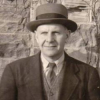John Crowe Ransom

John Crowe Ransom
John Crowe Ransomwas an American educator, scholar, literary critic, poet, essayist and editor. He is considered to be a founder of the New Criticism school of literary criticism. As a faculty member at Kenyon College, he was the first editor of the widely regarded Kenyon Review. Highly respected as a teacher and mentor to a generation of accomplished students, he also was a prize-winning poet and essayist...
NationalityAmerican
ProfessionPoet
Date of Birth30 April 1888
CountryUnited States of America
And yet what is Modernism? It is undefined.
Their free verse was no form at all, yet it made history.
For no art and no religion is possible until we make allowances, until we manage to keep quiet the enfant terrible of logic that plays havoc with the other faculties.
Till now poets were privileged to insert a certain proportion of nonsense - very far in excess of one-half of one per cent - into their otherwise sober documents.
The arts generally have had to recognize Modernism - how should poetry escape?
It is a miracle of harmony, of the adaptation of the free inner life to the outward necessity of things.
But we moderns are impatient and destructive.
And how can poetry stand up against its new conditions? Its position is perfectly precarious.
It is out of fashion in these days to look backward rather than forward. About the only American given to it is some unreconstructed Southerner, who persists in his regard for a certain terrain, a certain history, and a certain inherited way of living.
He can develop sense and style, in the manner of distinguished modern prose, in which event he may be sure that the result will not fall into any objective form.
Or he can work it out as a metrical and formal exercise, but he will be disappointed in its content. The New Year's prospect fairly chills his daunting breast.
Now between the meanings of words and their sounds there is ordinarily no discoverable relation except one of accident; and it is therefore miraculous, to the mystic, when words which make sense can also make a uniform objective structure of accents and rhymes.
Too much is demanded by the critic, attempted by the poet.
Two evils, monstrous either one apart, Possessed me, and were long and loath at going: A cry of Absence, Absence, in the heart, And in the wood the furious winter blowing.